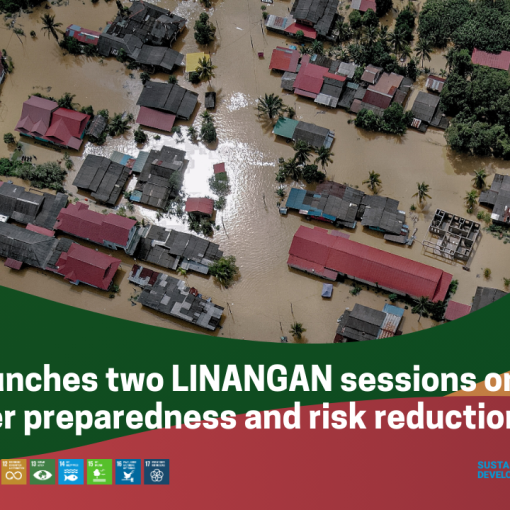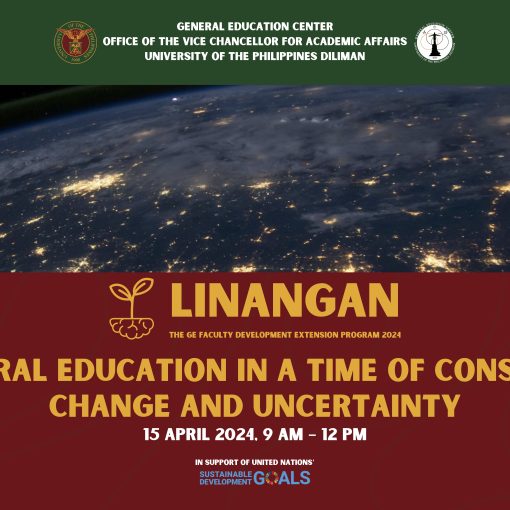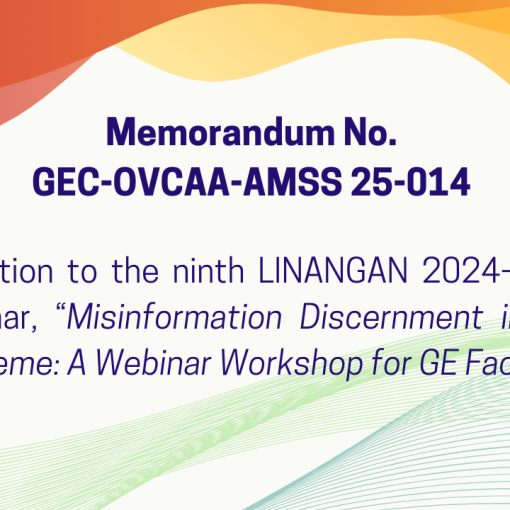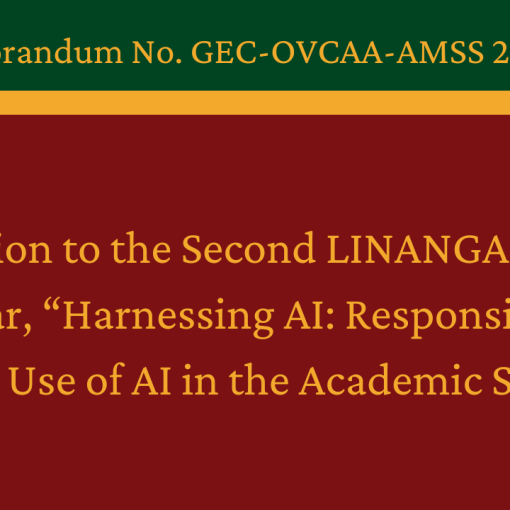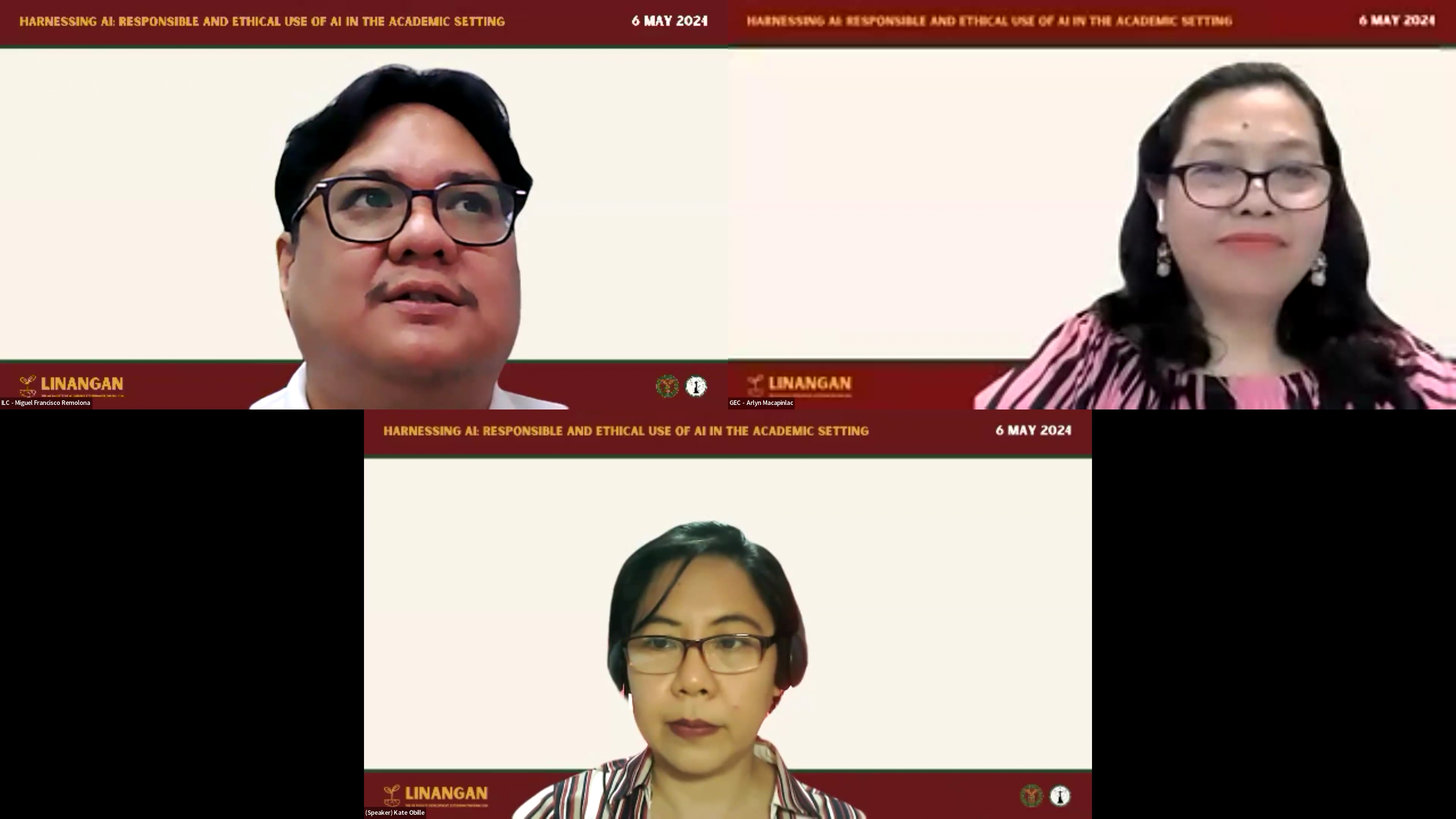
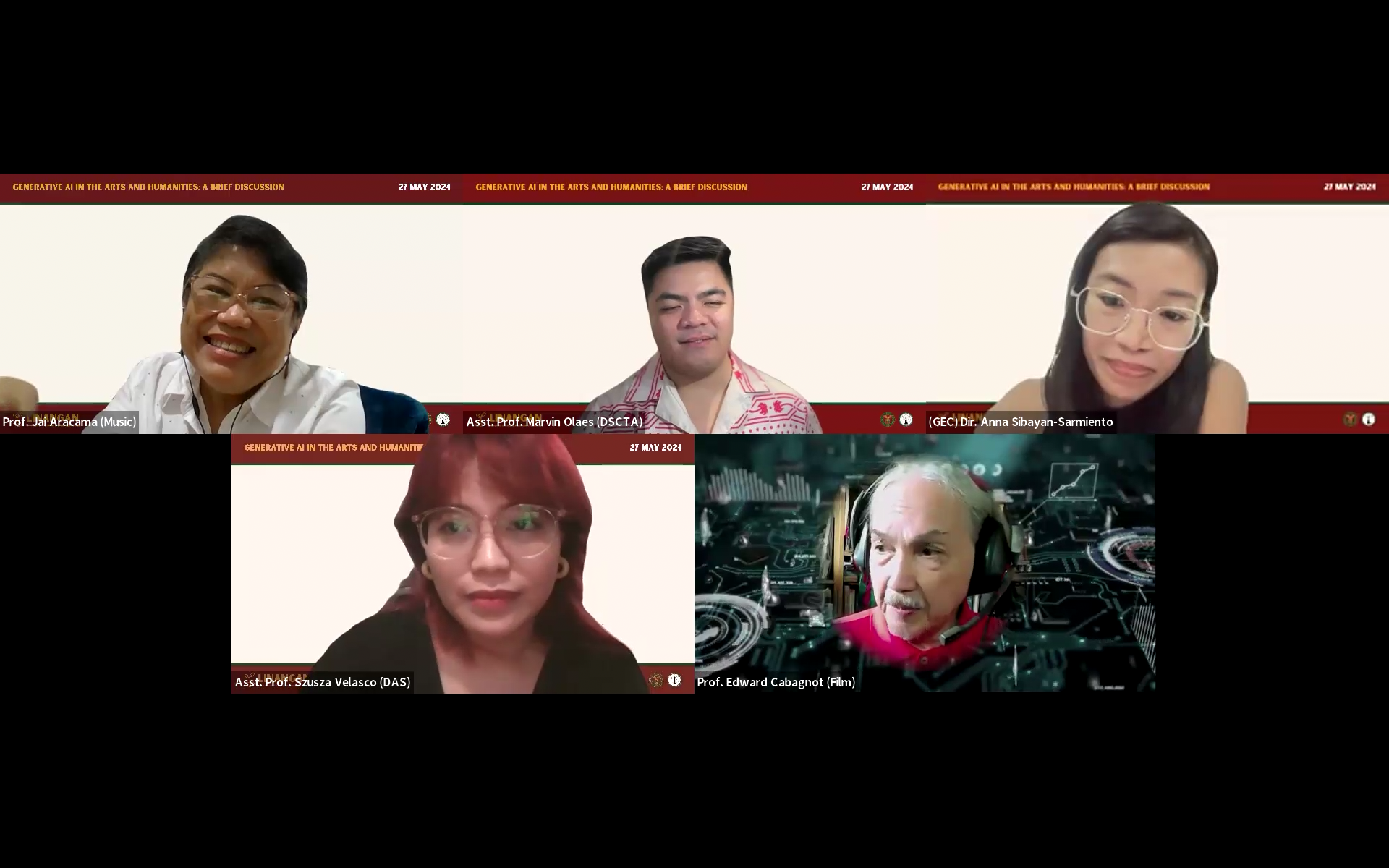
In keeping with the GE objective of enabling students to effectively address increasingly complex issues and challenges in the 21st century, the General Education Center’s next two LINANGAN webinars focused on exploring the integration of artificial intelligence (AI) in GE pedagogy, highlighting both its potential benefits and ethical considerations.
The first webinar, “Harnessing AI: Responsible and Ethical Use of AI in the Academic Setting,” held on May 6, 2024, featured Dr. Miguel Remolona from the UPD Chemical Engineering Intelligence Learning Laboratory, who discussed the fundamentals of AI and practical applications of AI integration to personalize learning experiences in classrooms, and Asst. Prof. Kathleen Obille from the UPD School of Library Science and Information Studies, who addressed ethical concerns related to AI in academia, emphasizing principles for using AI responsibly and building trust in its applications.
The second webinar, “Generative AI in the Arts and Humanities: A Brief Discussion,” was held on 27 May 2024. Prof. Janet S. Aracama shared insights on integrating AI in MuC 10 (The Philippine Chorale Experience), discussing how AI enhances learning in creative disciplines, while Edward Cabagnot discussed the positive impact of generative AI on the creative industry, particularly in the context of the GE course Film 12 (Sine Pinoy). Asst. Prof. Szusza Anne Velasco from the Department of Art Studies likewise contributed to the discussion through her opening remarks, where she makes relevant mention of ways to protect artists from generative AI. Lastly, Dr. Kristine Marie Reynaldo from the Department of English and Comparative Literature through the GEC Director, generously shared with the participants her previous work on the accountability and agency in the age of generative AI and a sample AI policy that may be included in syllabi.
Both webinars included open forums where participants raised questions about AI’s transparency, accountability, and its implications for student learning. These discussions highlighted concerns about maintaining fairness, privacy, and the overall impact of AI on educational outcomes. The overarching takeaway from the webinars was the recognition of the need to be open to generative AI’s undeniable existence in modern society and the importance of educators’ learning to harness its potential effectively and responsibly.
More pressing issues will be discussed as part of LINANGAN’s lineup for this year. Interested participants may know more about LINANGAN 2024 through this webpage, or rewatch previous webinars on GEC’s YouTube channel.

